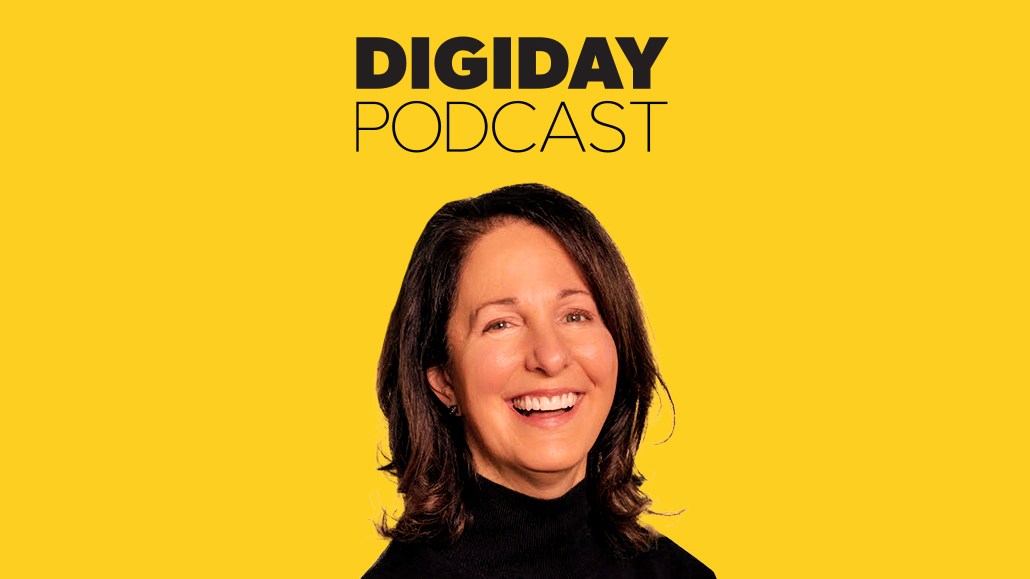Secure your place at the Digiday Publishing Summit in Vail, March 23-25
From Target to Uber: Kristi Argyilan reflects on the retail media evolution and its uncertain future

Subscribe: Apple Podcasts • Spotify
Kristi Argyilan has spent the last decade building out retail media businesses at the likes of Target, Albertsons and now Uber. She’s seen the RMN boom from the early aughts of in-store shopper marketing tactics to what it is today, a fast-moving landscape built on programmatic media buys and off-site ad opportunities.
If you ask Argyilan to say if her career path could be recreated in the automated, generative AI-first world, she’ll tell you no. The industry is no longer a linear path, and breakneck pace tech innovations, she says, make it hard to keep up with the changes.
“The career trajectory that I’ve been on, I don’t think that’s how careers are going to go going forward,” Argyilan said on a recent episode of the Digiday Podcast.
On this episode of the Digiday Podcast, Argyilan shares how she landed her job as Uber’s global head of advertising, how she knew when it was time to make a career pivot and why a retail media reckoning may be on the horizon.
Also on this episode, MSNBC changes it name to MS NOW, why AI-startup Perplexity wants to buy Google Chrome and a look inside The Trade Desk’s slump.
This interview has been lightly edited for clarity.
Building out Target’s retail media offering
I was at Target at the time that this idea of retail media really started to emerge, because retailers were sitting on top of all of this first-party data that was starting to inform their marketing decisions. As a media professional, I could easily see the opportunity that this could actually represent in the marketplace. It’s at Target I was actually overseeing media measurement, social guest engagement — so really driving the media practice at Target.
I was asked to take what was Target Media Network at the time and turn it into the media business for Target, and did it with the intention of bringing the same benefit that Target was realizing on first-party data applied to advertising decisions to bring that to the market so the broader market could participate in that as well.
Plotting the career path
I’ve always thought, in my mind, there are jobs that I’ll attack — that I’m not going to pick a company and be a lifer there. It’s more of a what’s the challenge at hand and the thing, not to fix, but to bring to the company as they prepare for that next big [change] of growth. I did a lot of that at Target, did that at Albertsons, and Uber is almost the mirror image of the work to be done.
Knowing when to jump
There probably have been times where maybe I stayed a few months too long or other times where I’m like, “Thank God I left when I did.” In hindsight, you can always look back and go, “Is timing ever perfect? No, because life is imperfect.” There was something that Steve Jobs had actually said that I always think about: If you’re having a tough month, suck it up. You’re going to have tough months. But if you’re having a tough six months, then you should probably be thinking about what you’re doing next. I use that as my temperature stuck to really understand where am I in this job.
More in Podcasts

OpenAI’s ad push begins, and The Knot is co-piloting
Ads have arrived in ChatGPT. The Knot is one of the first brands to try them, and is figuring out the rules as it goes.

‘An ethics issue’: Why some creators are re-auditing their brand deals after Hootsuite-ICE controversy
Hootsuite’s partnership with ICE sparked controversy earlier this year, prompting creators to re-examine their brand deals and ethics standards.

ChatGPT enters the ad game. Now what?
OpenAI has begun testing ads in ChatGPT through premium brand partnerships, signaling a new phase in its monetization strategy.








